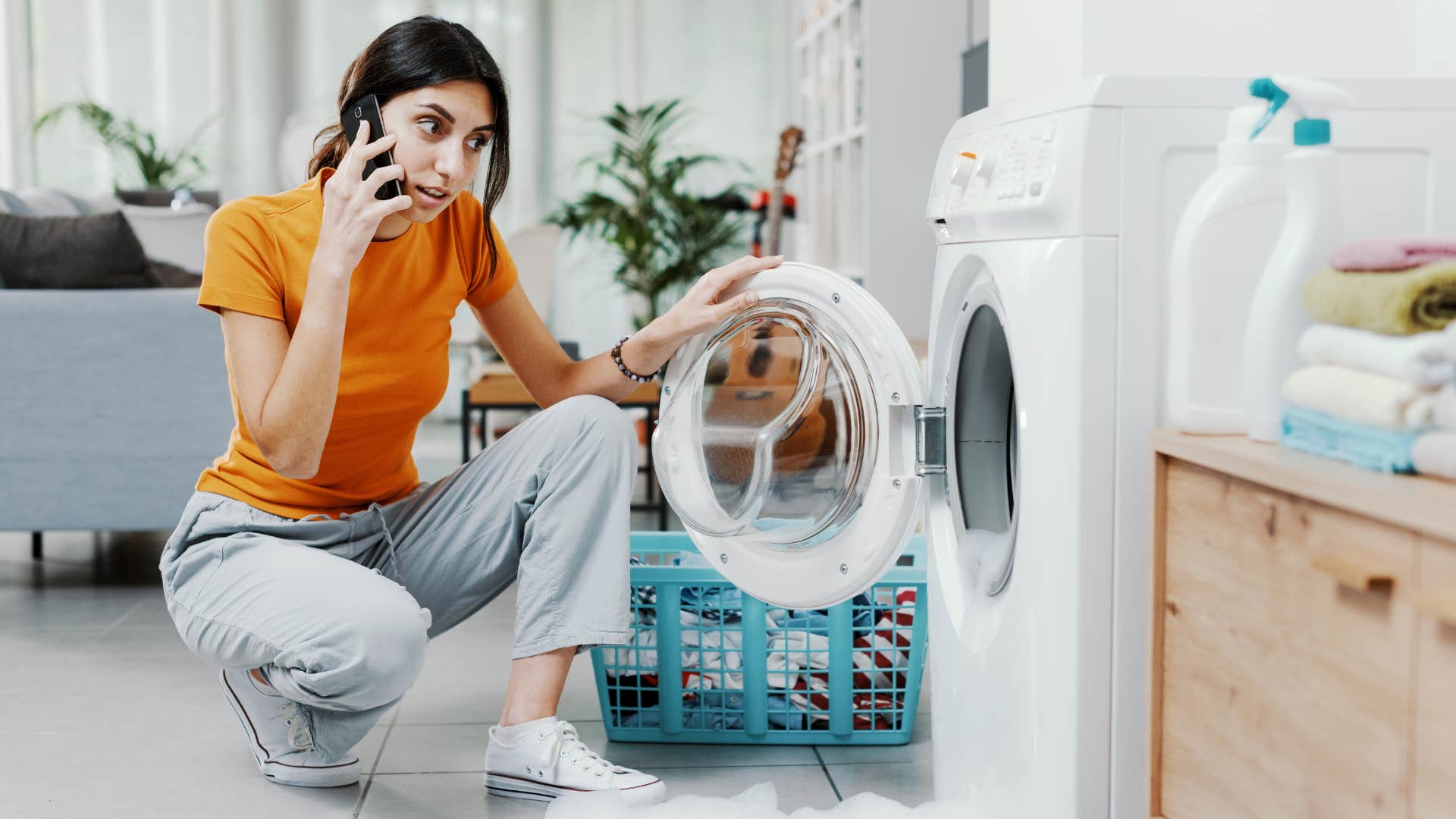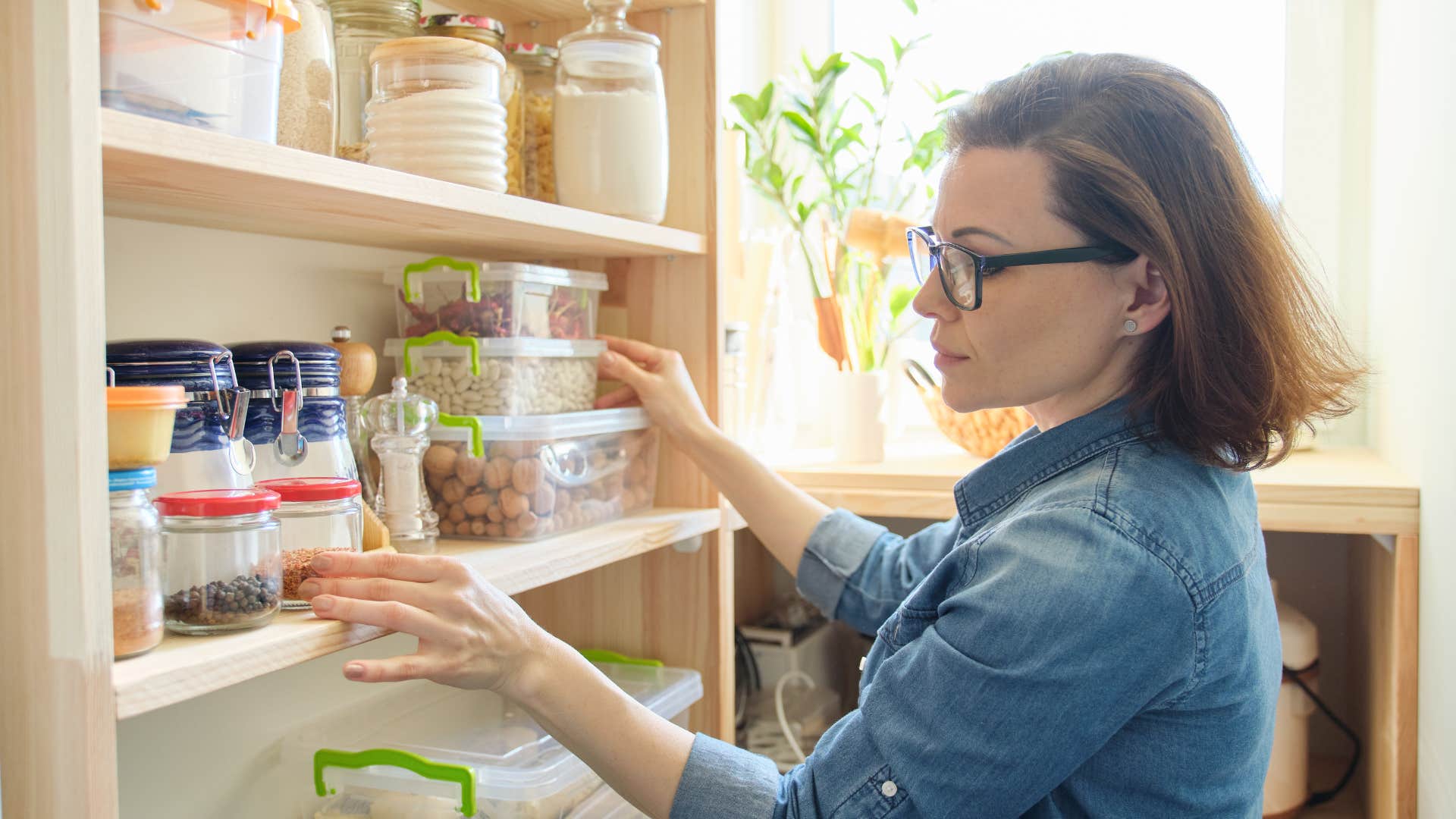11 Things You'll Never See In A Smart Person's Home Even If They Make Good Money
A person's living space is intertwined with their personality and intellect.
 Xavier Lorenzo | Shutterstock
Xavier Lorenzo | Shutterstock Intelligent people often boast a kind of self-assuredness and internal comfort that not only makes them happier, but improves their health, well-being, and relationships. They're not afraid to shift their perspective and change their minds, spend more time alone, and even express a kind of openness that allows them to try new things, stray away from societal norms, and experiment with their own identity.
That's why many of the things you'll never see in a smart person's home even if they make good money are subtle. They're all trendy, socially accepted, or clearly detrimental to personal well-being, so smart people steer clear — using their self-assuredness and self-discipline — to protect themselves.
Here are 11 things you'll never see in a smart person's home even if they make good money
1. Trendy decor
 Prostock-studio | Shutterstock
Prostock-studio | Shutterstock
While trends and the trend cycle at large aren't inherently bad, considering they give people a sense of belonging and community in an age plagued by loneliness and isolation, many people who consistently feed into them without a guiding internal identity lack self-esteem.
Smart people, who also tend to boast better emotional regulation and intelligence skills, often have greater self-esteem. Even though their occasionally perfectionist tendencies can subtly sabotage that intelligence, other habits — like promoting deeper connections and solitude — feed into it. They also fill their living spaces with decor and items that add value to their lives and serve as a method of self-expression.
That's why overly trendy decor that doesn't fulfill them or contribute to their sense of self is one of the things you'll never see in a smart person's home even if they make good money.
2. Uncomfortable furniture
 wavebreakmedia | Shutterstock
wavebreakmedia | Shutterstock
According to a study from the British Journal of Psychology, intelligent people tend to thrive with less social connections and friends, prioritizing the quality of their relationships over the actual quantity.
That's part of the reason they're intentional about crafting their living spaces and investing in furniture that promotes deeper connection, conversation, and interactions at home — they want themselves and others to feel comfortable and safe.
Even if it may seem subtle, even an intelligent person's desire to spend more time alone contributes to their home decor and furnishing decisions. They want to have personal spaces crafted to indulge in their habits and hobbies without discomfort.
3. Tons of junk food
 Krakenimages.com | Shutterstock
Krakenimages.com | Shutterstock
Considering the kinds and quantity of food we consume is linked to brain power and intelligence, it's not surprising that the smartest people leverage their self-discipline to follow healthy food habits and routines in their daily lives.
You'll never find pantries stocked with processed foods or leftover junk food hanging around in their homes consistently, because they know feeling and operating better during the day is tied to what they eat.
Of course, self-discipline is often more important in predicting consistency and success than pure IQ is, according to a study from the Journal of Youth and Adolescence. So, for intelligent people that have both, following routines and sticking to healthy habits is much easier.
4. Too many screens
 PeopleImages.com - Yuri A | Shutterstock
PeopleImages.com - Yuri A | Shutterstock
Too much screen time in everyday life is linked to a number of mental, cognitive, and behavioral concerns, both in children in their impressionable years and for adults later in life. That's exactly why too many screens — a million TVs, laptops, and cell phones — are some of the things you'll never see in a smart person's home even if they make good money.
They have the self-discipline in many cases to avoid doomscrolling or indulging mindless habits, instead opting for active habits and routines that push them toward fulfilling social connection, internal health, and peace.
5. Artificial fragrances
 New Africa | Shutterstock
New Africa | Shutterstock
From cleaning products to scented plug-ins and candles, an overuse of artificial fragrances is one of the things you'll never see in a smart person's home, even if they make good money. According to a study from Purdue University, many people's homes are more polluted than the outside environment, with aromatherapy and cleaning products tainting the air that they're breathing in.
Even though they may not be anti-artifical scents or perfumey candles, they likely know the benefit of clean air inside their home, which is why many have plants and other air purifying devices to protect their well-being and health.
6. A sterile cleanliness
 fizkes | Shutterstock
fizkes | Shutterstock
Even though it might seem antithetical to their brand, many smart people thrive with a little bit of clutter at home, especially in their creative spaces. According to a study from Psychological Science, removing clutter and cleaning can have its own benefits — like reducing stress and promoting a more balanced mind. But clutter, especially for intelligent people, boosts creativity, inspiration, and freshness.
That's why a sterile cleanliness or a lack of clutter are some of the things you'll never see in a smart person's home, even if they make good money and can hire services or people to do it for them. Intelligent people are innately curious. They want the space and environment to practice without feeling restricted or sterile.
7. A hoard of shopping bags
 Alone Pik | Shutterstock
Alone Pik | Shutterstock
According to a study from the journal Intelligence, highly intelligent people also tend to boast higher levels of financial literacy. While that can manifest in a number of ways, it can help to protect them from the impulsivity and emotional spending habits that seem to be plaguing many generations amid our digital consumer landscape.
That's why tons of packages or shopping bags are some of the things you'll never see in a smart person's home even if they make good money. They're intentional about what material things come into their home, but also how they spend their money.
They also boast the emotional intelligence and regulation skills to avoid spending to cope with discomfort, anxiety, or other complex emotions, so they're not constantly battling overbearing consumerism and spending to cope with their own mental health.
8. Plastic plants
 Ground Picture | Shutterstock
Ground Picture | Shutterstock
If they're going to bring in decor like greenery and flowers into their spaces, smart people are going to invest time, money, and energy into nurturing real ones. Not only do they tend to bring an element of calmness, peace, and tranquility to people's homes, they can positively affect air quality and general energy efficiency.
That's why fake plants are one of the things you'll never see in a smart person's home, even if they make good money. They'd prefer to invest in real ones that will actually make a difference in their lives through caregiving and nurturing practices.
9. Broken items
 Stock-Asso | Shutterstock
Stock-Asso | Shutterstock
Whether it's a broken dining room table, a squeaky bed frame, or a broken lamp in the corner, smart people don't simply leave things to be fixed and avoid taking care of the things inside their homes. That's why you'll never see these things inside a smart person's home.
On an energetic level, having appliances and furnishings not functioning properly can spark negativity and bad energy in their spaces, which is why smart people fix things when they break, whether it means spending money on service or doing it themselves.
10. Low-quality necessities
 VH-studio | Shutterstock
VH-studio | Shutterstock
Even if they're frugal by nature or smart about their money, low-quality necessities are some of the things you'll never see in a smart person's home. They're more interested in investing in things that will actually last and serve them, not cheaply made and low-quality products that bring anxiety and annoyance to their everyday lives.
From toilet paper, to trash bags, pantry essentials, and even their clothing, if they're going to be using it regularly and in their personal lives, they want to invest in something that's worth the money they spend.
11. Overflowing boxes of sentimental things
 Krakenimages.com | Shutterstock
Krakenimages.com | Shutterstock
Smart people know that holding onto sentimental things and material items that spark a negative kind of nostalgia — urging them to live in the past and ruminate on things that have already happened — can be detrimental to mental health and well-being.
Of course, holding onto a few things — letters from partners, childhood memorabilia, and other gifts — can be healthy and positive, but for the most part, letting your physical space be constantly overshadowed by clutter and complex emotions.
Zayda Slabbekoorn is a staff writer with a bachelor's degree in social relations & policy and gender studies who focuses on psychology, relationships, self-help, and human interest stories.

